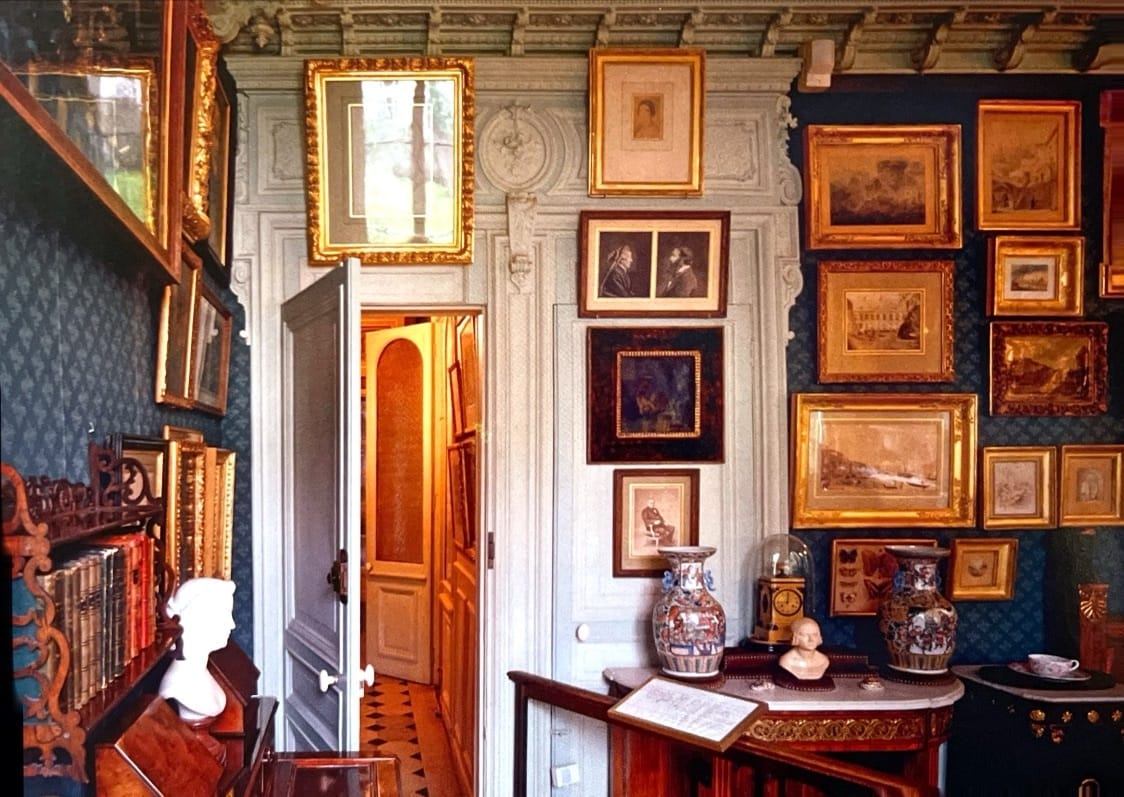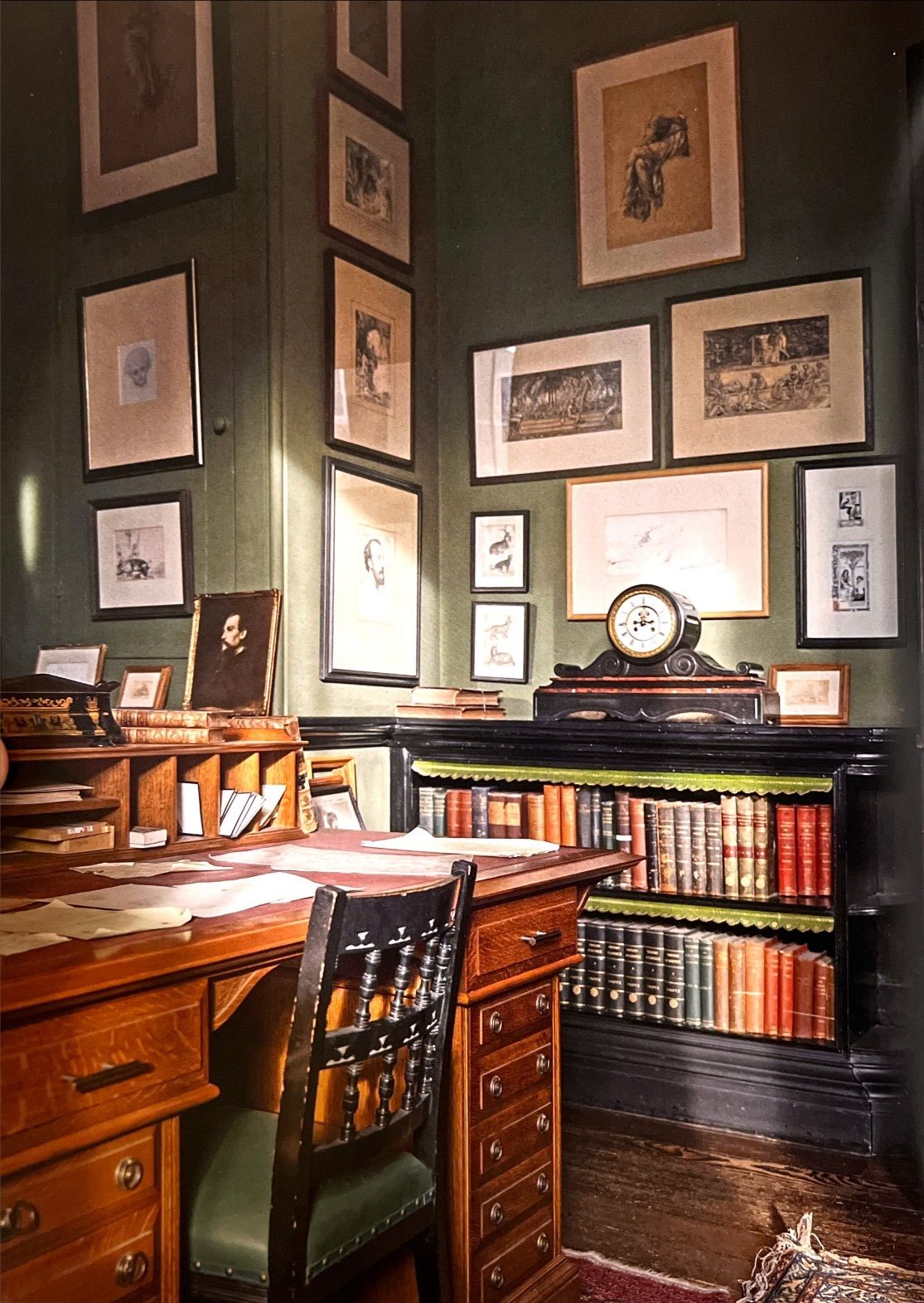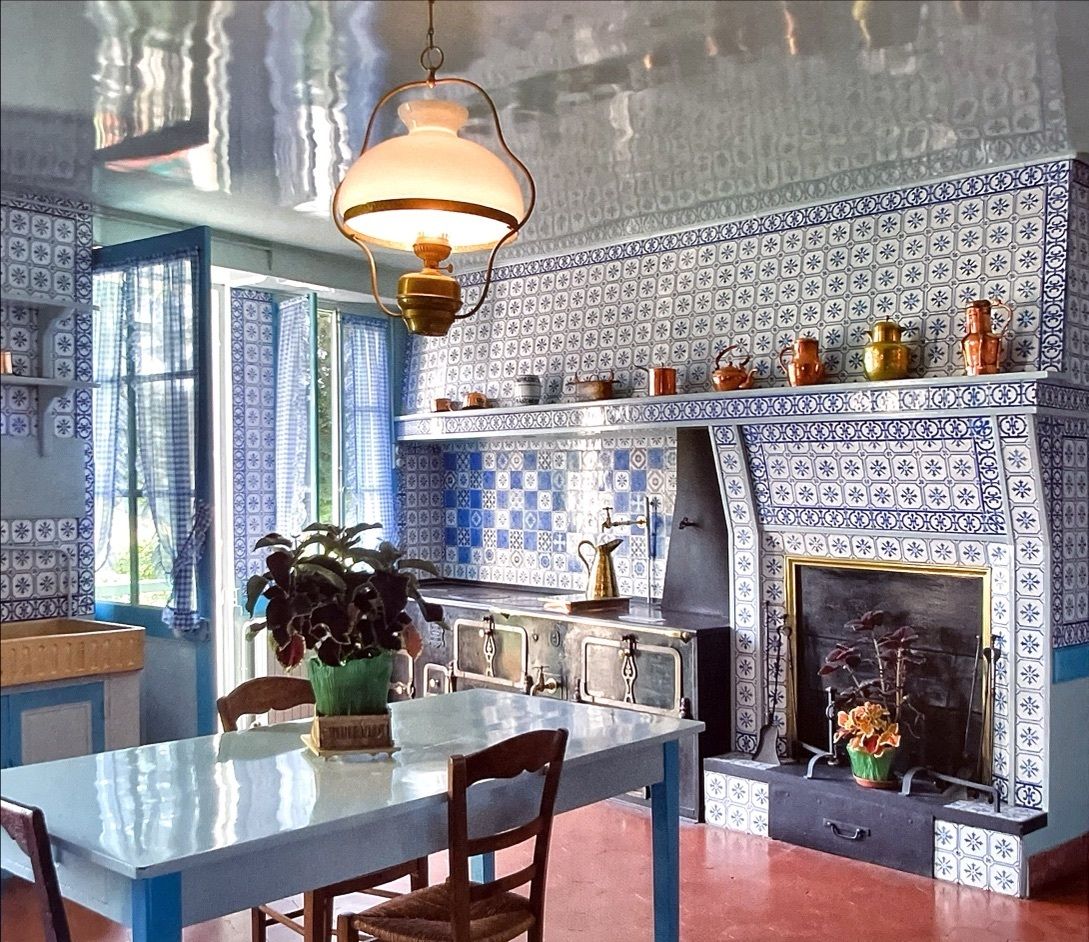In today’s issue:
The homes of great artists
The most important thing you can do according to Seneca
How Other Life almost died (and how I fixed it)

The home of Gustave Moreau (from Artists at Home by Susie Hodge).
Coming Soon: We’re Designing a Special Event and We Need Your Input
We’re building a Republic of Letters for the internet era, and as a part of this, we’re thinking hard about the sociological mechanics of high culture. We’ve hosted many low-key events bringing together thoughtful readers, writers, and founders/investors in the Other Life universe. We’re now planning something significantly more ambitious and exceptional. It will be expensive, but it will be unlike anything else currently available.
If this intrigues you, then you’re probably in our target market. To help us deliver the event you’re dreaming of, we really want to hear from you. Would you please take a moment to answer a few questions? Thanks!
Artists at Home
I stumbled on this book called Artists at Home by Susie Hodge, which my wife brought home from the library. Hodge studies the homes of thirty artists from various periods and places around the world.
"For most artists, their homes are where they are comfortable and can be themselves... and where their inventiveness can thrive and flourish."
I was struck by how fastidious many of the artists were regarding minor details of their spaces. The size of rooms, who was allowed in at which times, preferred light levels, etc.

From the home of Frederic, Lord Leighton
Books like this always tempt you to look for 12 Key Rules for Organizing Your Home If You Want to Be a Great Artist—but I think when you look at books like this carefully, you realize something different.
The more I study the lives of the greatest thinkers and writers, the more strongly I am convinced there really are no rules; successful artists have all kinds of different lifestyle preferences and daily routines; but strong personalities who produce strong creative work tend to have strong opinions and tastes, and they tend to put care into everything, so anything they say about their lifestyles and routines tends to be interesting and inspiring. And yet it’s predictive validity, it’s applicability for you trying to improve your creative life, is not merely zero but negative: Trying to copy great artists from the past on trivial details unrelated to your own personal work almost certainly brings other stupid habits of mind that will harm your spirit more generally.

The kitchen of Claude Monet
That said, you can just enjoy beautiful artifacts in the moment, and you can take some inspiration from the lives of great artists. Just don’t think for a minute that you’re going to download their lifestyle models, copy them, and then become a great artist!
"Every place conveys the artist’s individual character; for instance, Leighton’s house began as a simple brick structure with a secret doorway that allowed his models to enter without being seen by straight-laced Victorian neighbours.”
Personally, I think the great value of studying the lives of great artists and writers is that you’re really socializing with them. By surrounding yourself with great spirits, the greater elements of your own spirit come to the fore. You’re dissolving the fake and petty fears, you’re training yourself to remember that great spirit is not only possible but recurs regularly. By spending your time this way, you are implicitly pulling yourself toward a higher level, but not explicitly or analytically. That’s the big mistake that is very popular today, in my view.
Seneca’s “On the Shortness of Life”
Seneca was a Stoic philosopher and advisor to Emperor Nero. He wrote On the Shortness of Life (free full-text) during the Roman Empire's Silver Age, in the first century CE.
Most people waste their lives with trivial matters, Seneca argues. They fail to spend their time on what matters most, which is reflection on the true meaning of life.
So the essay is less about the shortness of life, and more about philosophy as a way of life.
Life is not inherently short, but people waste much of it. The pursuits of wealth, power, and pleasure do not bring true fulfillment. Engrossed and busy individuals have short and troubled lives. The study of philosophy and the pursuit of wisdom offer a way to transcend the limitations of a brief human life and achieve true fulfillment.
Therefore, you should prioritize a life of reflection and contemplation over material pursuits.
You’re cordially invited to join us for a discussion of this most edifying essay on Saturday, 10am Central. RSVP on the public link, or in the community if you’re a dues-paying member.
On Magic, Money, and Madness
Listeners of the podcast learned a few months ago that The Other Life Company hit a rough patch.
Nothing truly existential, but basically: the way I first built this company, as a portfolio of cohort-based philosophy courses, was not ideal. First, it would require me to play a managerial role with a group of collaborators playing lecturer. I saw that as a tolerable compromise to build something sustainable, but only if it could grow big enough... More critically, it was over-indexed on COVID-era tailwinds, especially WfH, which compensated for many weaknesses in my approach, product positioning, etc. I mean, it was great! I got to my first six-figure year this way, and really proved the potential for pure academic work in the new creator economy (i.e., promising no practical benefits). But starting around November of last year it became clear that I would need a change of strategy to achieve the ideal scholarly life I’ve been iterating toward (and achieve moderate wealth in a reasonable time frame).
A big change of strategy is very difficult when you’ve built an overly complicated business that’s not spinning off much more cash than you need every month…
So while it wasn’t existential, it was temporarily… broken. To right the ship would take thought, time, and effort, which would detract from the work of driving revenue. And as I said, I wasn’t bringing in so much cash that I could just stop for a couple months.
Anyway, I explored many options. I’m blessed that a few people in my audience over the years have expressed interest in investing; I had some serious conversations with a few of them. I actually got very far with one party, together we spent quite a lot of time hammering a plan into place, and they were about to cut a check. They were amazing, even just speaking with them regularly kept me afloat psychologically, and I was really excited about this possibility for a couple months. But ultimately, I just realized that money was not primarily what I needed and that taking investment was not the right path for me. At least not right now.
I came to this resolution through a few key experiences/insights—which I discuss at length in the latest podcast. One was a chance encounter with another writer who I admire. And the other was the actual solution, which just fell into my lap—and what can one call that, but the hand of God?
This solo podcast is about the real magic of the creative life, as I see it, which is very tricky to monetize. Not impossible—just tricky. For specifics and details, catch up here: